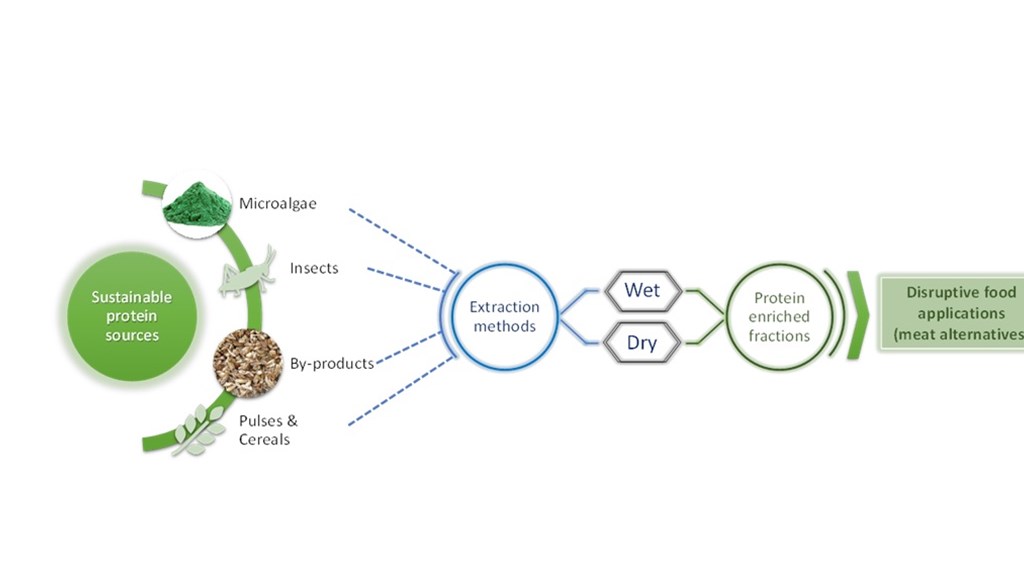iBET (Portugal) and Nofima AS (Norway) recently published a book chapter entitled “Alternative Protein Sources” in the book “Food Technology Disruptions” (Elsevier) on alternative protein sources.
The book chapter was published in the scope of a bilateral initiative funded by EEA Grants, entitled ExtraSnack – Impact of the extrusion process on health-related properties of a pea and oat snack.
This project aims to investigate the health properties of novel plant-based snacks, produced by extrusion technology using pea starch, pea protein and oat fiber.
During the last years, the protein market has been changed due to consumer demand for sustainable, and healthier protein sources.
Thus, the main key challenges of this industry are:
- meeting consumers demand
- economic and environmental sustainability
- cost-effective nutritional value
- processing capacity
- labelling claims and
- taste and texture
The collaborative publication introduces the alternative protein products as emerging ingredients in protein industry.
It presents an overview of different alternative protein sources such as land based (pulses and cereals), microalgae and insects. It also covers processes to recover protein rich fractions (flours, concentrates and isolates) from these sources such as wet and dry extraction methods applied together with pre-treatment processes. Finally, the authors discuss how these alternative protein products will assist the development of meat analogues, a disruptive application in the Food Industry, focusing on several studies described in the scientific literature.
The ExtraSnack initiative is funded by the Bilateral Fund program of EEA Grants 2014-2021. This fund supports initiatives aimed at strengthening relations between Portugal and Iceland, Liechtenstein and Norway.
About EEA Grants
The EEA Grants represent the contribution of Iceland, Liechtenstein and Norway towards a green, competitive and inclusive Europe. There are two overall objectives: reduction of economic and social disparities in Europe, and to strengthen bilateral relations between the donor countries and 15 EU countries in Central and Southern Europe and the Baltics. The three donor countries cooperate closely with the EU through the Agreement on the European Economic Area (EEA). The donors have provided €3.3 billion through consecutive grant schemes between 1994 and 2014. For the period 2014-2021, the EEA Grants amount to €1.55 billion. Learn more at https://www.eeagrants.gov.pt/en/
:::::::::::::::::::::::::::::::::::::::::::::::::
Photo: The value chain for alternative protein sources (Source: “Alternative Protein Sources” chapter published in “Food Technology Disruptions” (Elsevier))
